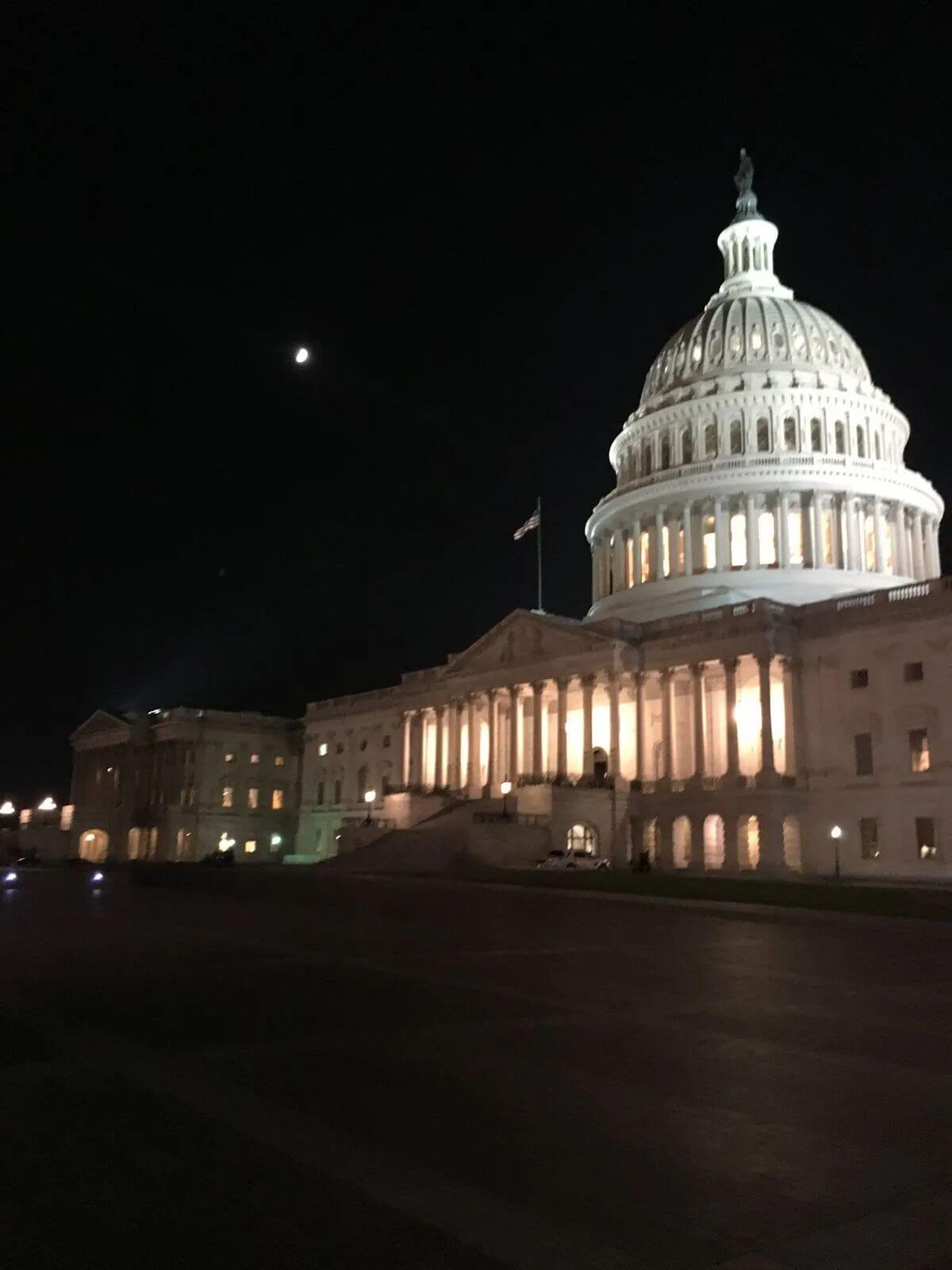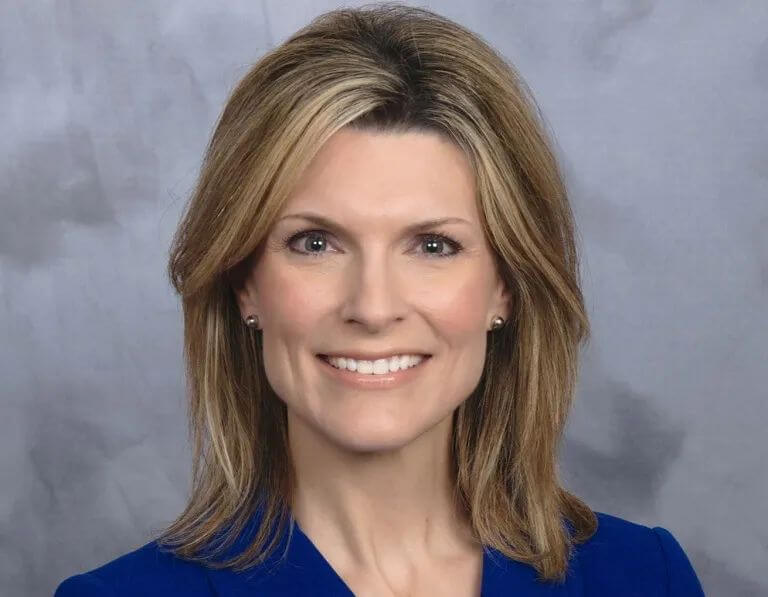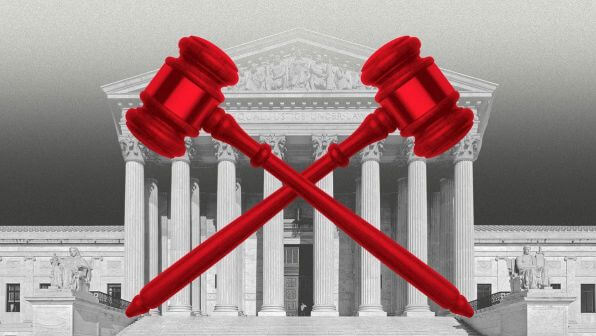7/1 Torchbearer Weekly Policy Update
Thank you for letting us be your trusted source for local, state, and federal policy updates. Let’s dig in…
- Senate passes Trump's "big, beautiful bill" after 11th-hour panic
- Indiana colleges freeze tuition
- Indiana boosts entrepreneurship with $925K grants
- Indiana DCS cuts management layers to boost efficiency
- Nieshalla launches bid for Indiana Comptroller
- Share the Torchbearer Newsletter with Your Network!
- Important Dates
Senate passes Trump's "big, beautiful bill" after 11th-hour panic

Senate Republicans passed President Trump's "big, beautiful bill" Tuesday, with help from Vice President Vance as a tie-breaker.
Why it matters: It's a colossal achievement for Senate leadership and the White House. But the taxes, border and defense package still has to clear the House — where discontent has been building for days.
- The bill passed 51-50 after a grueling, multi-day process that kicked off Saturday evening and ended with a 24-hour vote-a-rama.
- GOP Sens. Rand Paul (Ky.), Thom Tillis (N.C.) and Susan Collins (R-Maine) voted with Democrats against the bill, requiring a tie-breaking vote from Vance.
- Sen. Lisa Murkowski (R-Ala.) ended up voting for the legislation after multiple rounds of overnight negotiations. Murkowski strolled out of Senate Majority Leader John Thune's (R-S.D.) office shortly before 4am on Tuesday, without giving any indication of how she'd gotten to aye.
- Note: Indiana Senators Todd Young (R) and Jim Banks (R) both supported the bill.
Zoom in: At the last moment, Senate GOP leaders doubled the size of a new fund aimed at improving rural health care access to $50 billion — a move aimed at securing Collins' support.
- Collins earlier offered an amendment to increase the funding to $50 billion, but it was rejected 78 to 22, with most Democrats voting against it.
- An amendment to remove the 10-year moratorium on state regulation of AI passed 99-1, with only Tillis voting against it.
- Democrats forced votes on dozens of amendments on everything from bolstering Medicaid to gutting tax cuts for wealthy earners, all of which failed on the floor.
What to watch: House lawmakers have been raising alarms about the Senate's changes, with conservatives decrying how much it would add to the deficit and moderates worried about its deeper cuts to Medicaid.
- Speaker Mike Johnson (R-La.) is calling House Republicans back from recess and targeting a Wednesday vote to try to meet Trump's July 4 deadline.
- Johnson said in a statement after the vote that the House would "work quickly" to clear the measure, adding, "House Republicans are ready to finish the job and put the One Big Beautiful Bill on President Trump's desk in time for Independence Day."
- The president and Vance have been closely involved in whipping support for the bill in the Senate — and their influence will be critical to winning over concerned House members, too.
Between the lines: The Congressional Budget Office estimates that the bill would add roughly $3.3 trillion to the national debt over the next 10 years.
- The White House disputes the analysis, arguing it would instead decrease the deficit by over $5 trillion when combined with other growth efforts.
- CBO also estimates the changes to Medicaid would result in nearly 12 million fewer people with health insurance over the next decade.
- "Today, Senate Republicans betrayed the American people and covered the Senate in utter shame," Minority Leader Chuck Schumer (D-N.Y.) told reporters after the vote. "This vote will haunt Republicans for years to come."
The details: The bill makes permanent Trump 2017 tax cuts and adds additional tax benefits — no tax on tips, no tax on overtime and no tax on social security.
- It makes significant changes to the Medicaid program, including imposing work requirements and eventually lowering provider taxes from 6% to 3.5%.
- It raises the debt ceiling by $5 trillion, and provides $175 billion for border security as well as $150 billion for defense.
- It temporarily raises the cap on state and local tax (SALT) deductions to $40,000 before reverting to the current $10,000 cap after 5 years.
The bottom line: Even if the House manages to put the legislation on Trump's desk this week — Republicans have a highly skeptical public to convince.
- Recent polls have shown only 23-38% of American adults and voters support the legislation.
Editor's note: This story has been updated with additional reporting. (Axios)
Indiana colleges freeze tuition

All of Indiana’s public colleges and universities will freeze in-state undergraduate tuition for the next two school years, the Governor’s Office announced Tuesday.
Why it matters: This marks the first time in nearly 15 years that more than two campuses have frozen tuition simultaneously.
- The move aims to make education more accessible and affordable for students across Indiana.
- It demonstrates Indiana's leadership in providing high-quality education at an affordable price.
The big picture: The decision includes flagship institutions and satellite campuses, like IU Indianapolis and Purdue University Fort Wayne.
- Ball State University, Indiana State University, and Purdue University are among those participating.
Yes, but: The freeze comes amid budget cuts affecting some institutions, leading to layoffs at Purdue Fort Wayne and Ivy Tech.
- Some schools initially expressed concerns over the timing and financial implications of the freeze.
What they’re saying: Gov. Mike Braun emphasized the importance of efficiency and maintaining quality in education.
- Samantha Fleischaker, a student at the University of Southern Indiana, highlighted the opportunity it creates for students from diverse backgrounds. (IBJ)
Indiana boosts entrepreneurship with $925K grants

INDIANAPOLIS — Indiana’s Commerce Office has awarded $925,107 to accelerate entrepreneurial activity statewide through the Community Collaboration Fund (CCF).
Why it matters: This initiative supports 28 community-led projects focusing on entrepreneurial education, connection, and acceleration across Indiana.
- These projects aim to fill critical gaps in the entrepreneurial ecosystem and support underserved markets.
The big picture: Under Governor Braun’s leadership, the initiative reaffirms Indiana’s commitment to cultivating Main Street entrepreneurship.
- Projects include AI education, business planning, and financial literacy programs.
- Focus areas include creative economy, childcare, food and beverage, defense, and rural communities.
What they're saying: "These community projects will ensure that current and future entrepreneurs across the state have access to the programming, resources, and support needed to start and scale a business," said Secretary of Commerce David Adams.
Details: Notable projects include:
- AI for Business Growth: Equips small business owners with practical AI skills.
- Business and Entrepreneur Launch Tool (BELT): Provides hands-on training to local entrepreneurs.
- Childcare Entrepreneurial Training Program: Offers education and mentorship to childcare entrepreneurs.
Indiana DCS cuts management layers to boost efficiency

The Indiana Department of Child Services (DCS) is set to eliminate three layers of management under a new reorganization plan called Project Awaken, which aims to improve communication and decision-making.
Why it matters: This restructuring will impact up to 40 employees but is designed to ensure better outcomes for child safety without affecting frontline services.
- The plan is expected to save between $4 million and $8 million, potentially redirecting funds to child safety efforts.
The big picture: DCS will reduce from 18 regions to five, aligning resources and policies for more consistent service delivery.
- The focus is on creating direct lines of authority for family case managers to enhance operational efficiency.
What they're saying: "All Hoosier children deserve a safe place to lay their head at night," said Gov. Mike Braun, emphasizing the need for efficient management.
Details: The reorganization aligns with new mission, vision, and purpose statements announced earlier, marking the second phase of a broader plan initiated post-election. (Indiana Capital Chronicle)
Nieshalla launches bid for Indiana Comptroller

Indiana Comptroller Elise Nieshalla, having served since 2023, announced her bid to run for a full term, emphasizing her record and future goals.
Why it matters: Nieshalla has been instrumental in fiscal management, notably divesting from Chinese investments, and aims to enhance transparency and efficiency in state operations.
- The Indiana Public Retirement System completed its divestment from Chinese entities, four years ahead of schedule, under her guidance.
Achievements: Nieshalla's tenure includes improved financial transparency through the Indiana Transparency Portal and receiving continued recognition for excellence in financial reporting.
- She plans to introduce AI into accounts payable and streamline fund numbers to enhance transparency and ease of understanding.
What they're saying: "It is an absolute privilege to serve as state comptroller in a great state like Indiana," Nieshalla stated, highlighting her commitment to fiscal responsibility.
Goals: In her prospective term, she aims to address the national debt crisis, leveraging her role in the State Financial Officers Foundation and leading a National Debt Crisis Task Force. (Indy Politics)
Indiana lawmakers to study AI and health topics

The Indiana General Assembly’s Legislative Council has assigned topics for the 2025 legislative interim, including artificial intelligence, maternal mental health, and K-12 school funding.
Why it matters: These interim study committees provide a platform for in-depth analysis of pressing issues, setting the stage for the 2026 legislative session.
- The focus includes government efficiency, recreational land use, and maternal health, addressing significant barriers to improving life for Hoosiers.
The big picture: The committees, chaired by the Senate, will work over the summer and fall, with a final report due by November 1, 2025.
What they're saying: "Interim study committees provide a venue outside of the legislative session for members to take an in-depth look at issues facing Indiana," said Senate President Pro Tem Rodric Bray, R-Martinsville.
Details: The study topics cover various areas, including medical debt, public land value, and AI technology use by state agencies. (The Statehouse File)
Trump halts trade talks with Canada amid digital tax dispute

President Trump announced on Friday that the U.S. will cease trade negotiations with Canada and will impose tariffs on Canadian goods within a week.
Why it matters: This decision further strains the U.S.-Canada economic relationship, already under pressure since Trump took office.
- The move is in response to Canada's digital services tax on U.S. tech firms.
What they're saying: "We are hereby terminating ALL discussions on Trade with Canada, effective immediately," Trump wrote on Truth Social, adding that tariffs will be announced within seven days.
State of play: Treasury Secretary Scott Bessent indicated that the U.S. Trade Representative may investigate the tax, potentially leading to more restrictions.
- Payments for Canada's Digital Services Tax are due Monday, with business groups urging the Trump administration to renegotiate the policy.
The intrigue: The halt in talks comes just before the "Liberation Day" tariff pause expires, though extensions are possible.
What to watch: Global interest in digital service taxes is rising, with several European countries implementing or proposing similar measures. (Axios)
Indiana Supreme Court hears property tax cap case

The Indiana Supreme Court is deliberating a case that could significantly affect local government revenues by expanding the 1% property tax cap for homesteads.
Why it matters: The decision could lead to revenue losses for schools, police, and fire stations, impacting community services.
- Homeowners would benefit from reduced tax bills if more land falls under the 1% cap.
The big picture: The case challenges the constitutionality of limiting the cap to one acre, arguing it conflicts with the constitutional provision of "curtilage."
- The Indiana Tax Court previously found the one-acre limit unconstitutional, but the Supreme Court's ruling remains pending.
What they're saying: "I’m concerned that schools, police stations, [and] fire stations would likely close in many communities because of lack of revenue," noted Justice Christopher Goff.
Details: The case could increase administrative burdens on assessors, requiring them to evaluate property use rather than size alone. (Inside Indiana Business)
Indiana cuts low-enrollment college programs

Indiana's public colleges are phasing out or merging over 400 low-demand degree programs as part of a statewide higher education reform.
Why it matters: The cuts aim to focus resources on in-demand fields and comply with new state budget requirements.
- Nearly one in five degree programs will be eliminated, suspended, or merged across six institutions.
The big picture: This move is intended to modernize Indiana’s higher education system and align student skills with market demands.
- Gov. Mike Braun praised the initiative as a way to enhance the value of higher education for students and families.
Details: Affected programs include foreign languages at Indiana University and literature at Purdue University.
- Ball State is suspending its English Ph.D. program, while Ivy Tech is eliminating degrees in public safety and nanotechnology.
What's next: Students enrolled in affected programs will complete their degrees through a teach-out process, while colleges must seek approval to continue underperforming programs. (Indiana Capital Chronicle)
Share the Torchbearer Newsletter with Your Network!

Not signed up for our weekly newsletter? Sign up today!
Important Dates:

We are awaiting interim study committee dates. Stay tuned!
